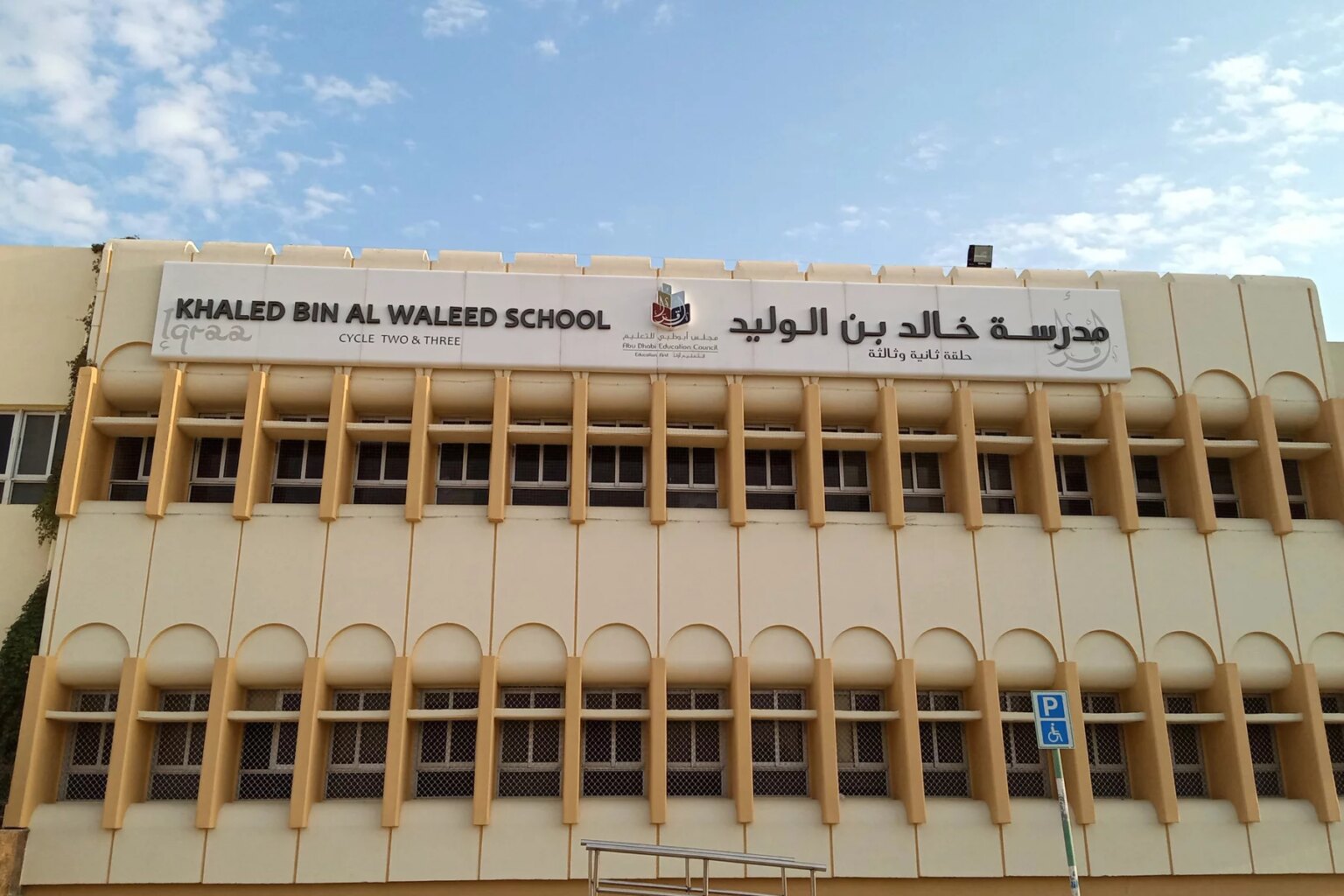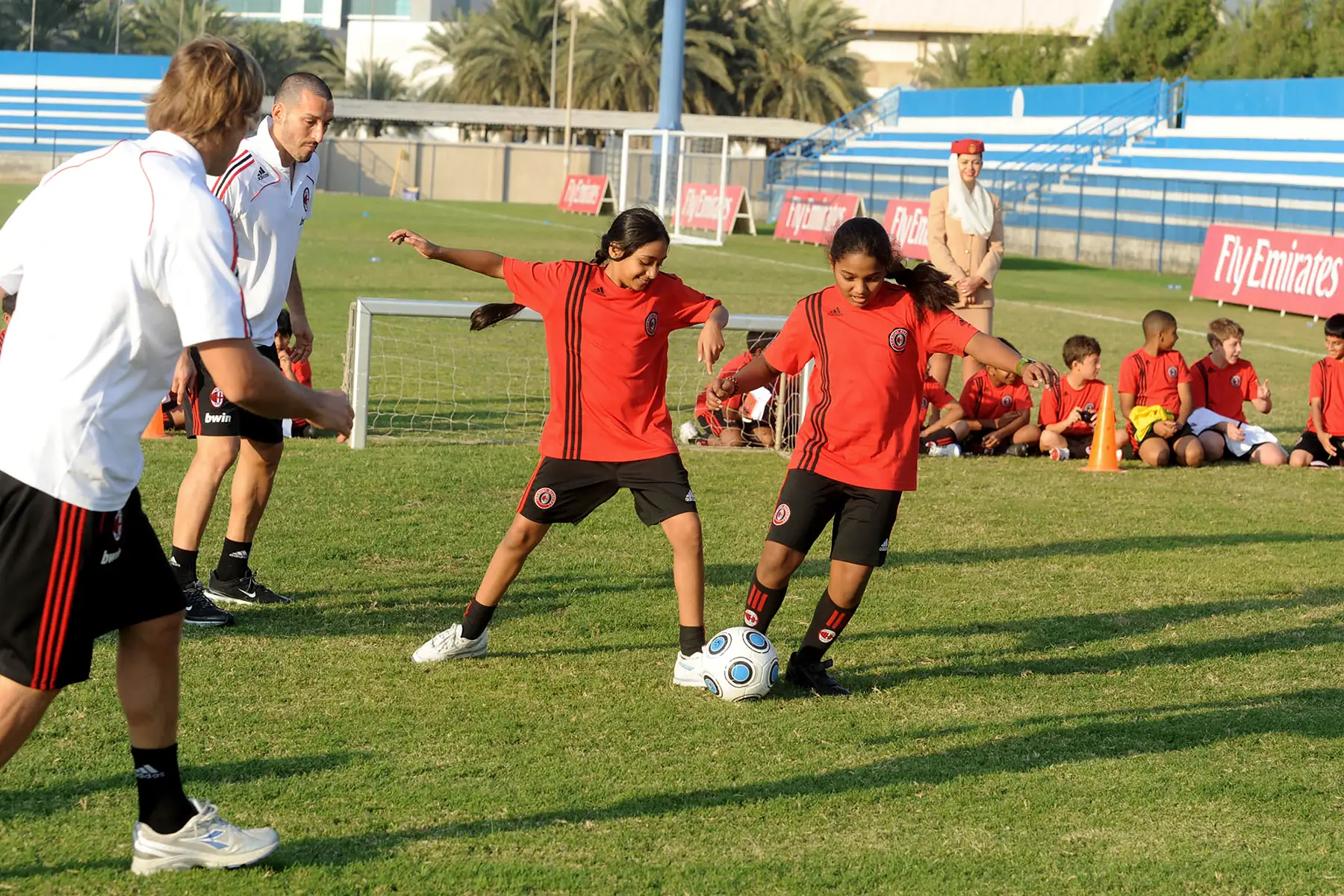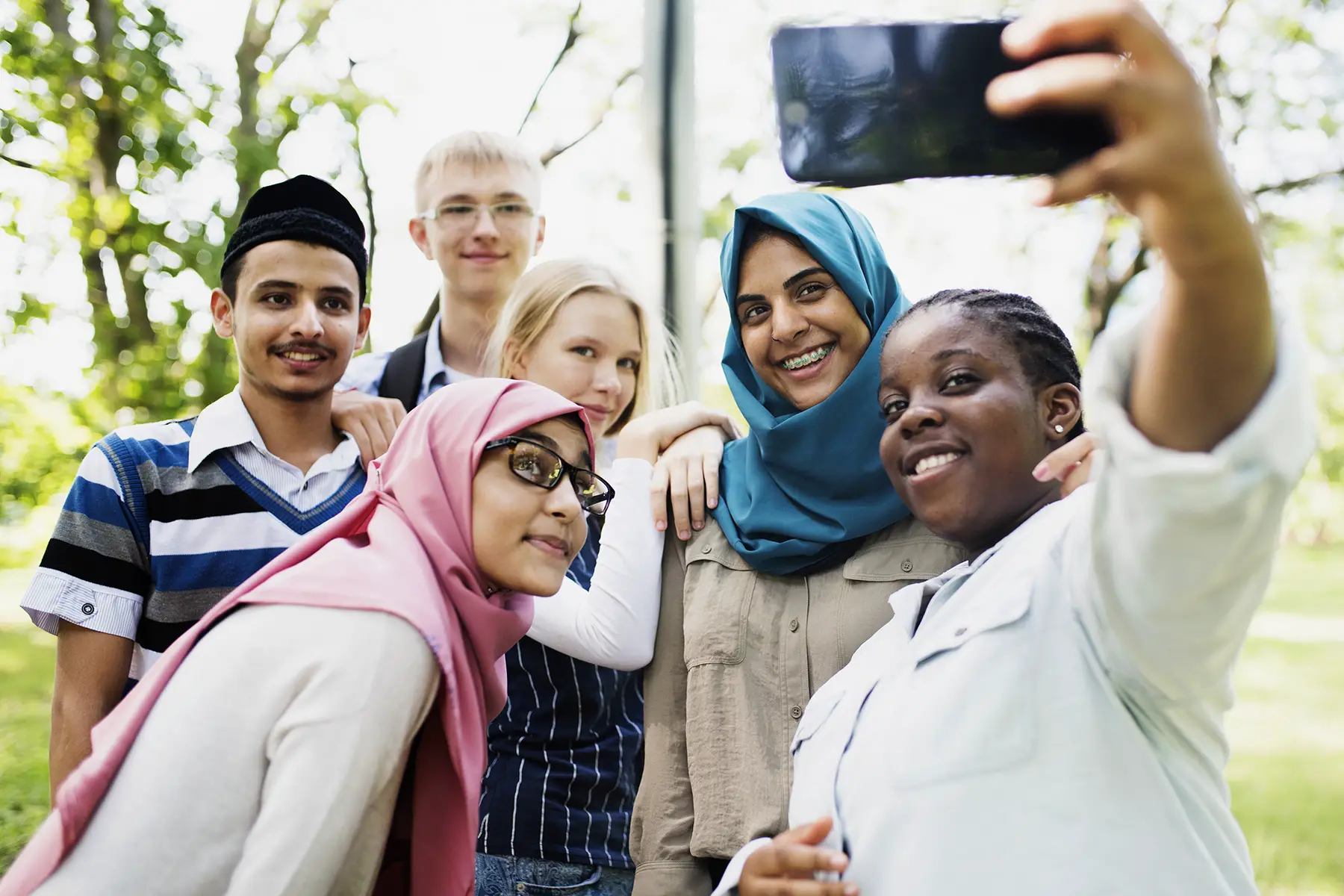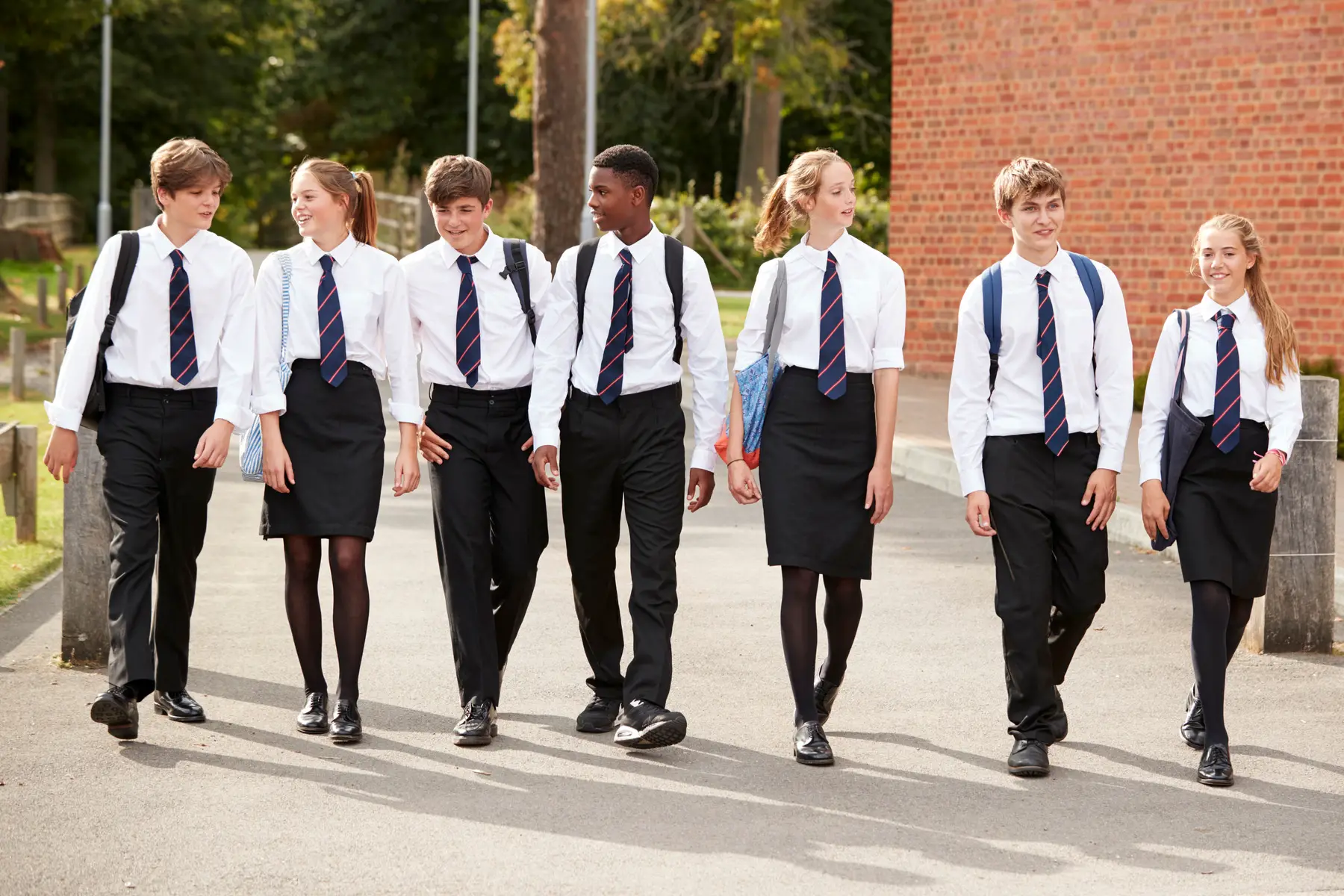Between adjusting to an entirely new culture, language, and workweek in the UAE, parents can feel overwhelmed when considering their children’s educational needs. Fortunately, much of life in the country cater to the needs of international families, and schooling is no exception.
Luckily, this guide is here to outline the ins and outs of secondary schools in the UAE, including the following:
The secondary education system in the UAE
The Ministry of Education (MoE) governs primary, secondary, and higher education in the UAE on a federal level. However, each emirate also has a local governing body, for example:
- Dubai – The Knowledge and Human Development Authority (KHDA)
- Abu Dhabi – Department of Education and Knowledge
Because both federal and local bodies regulate schools, standards are comparable with slight variations across the country.
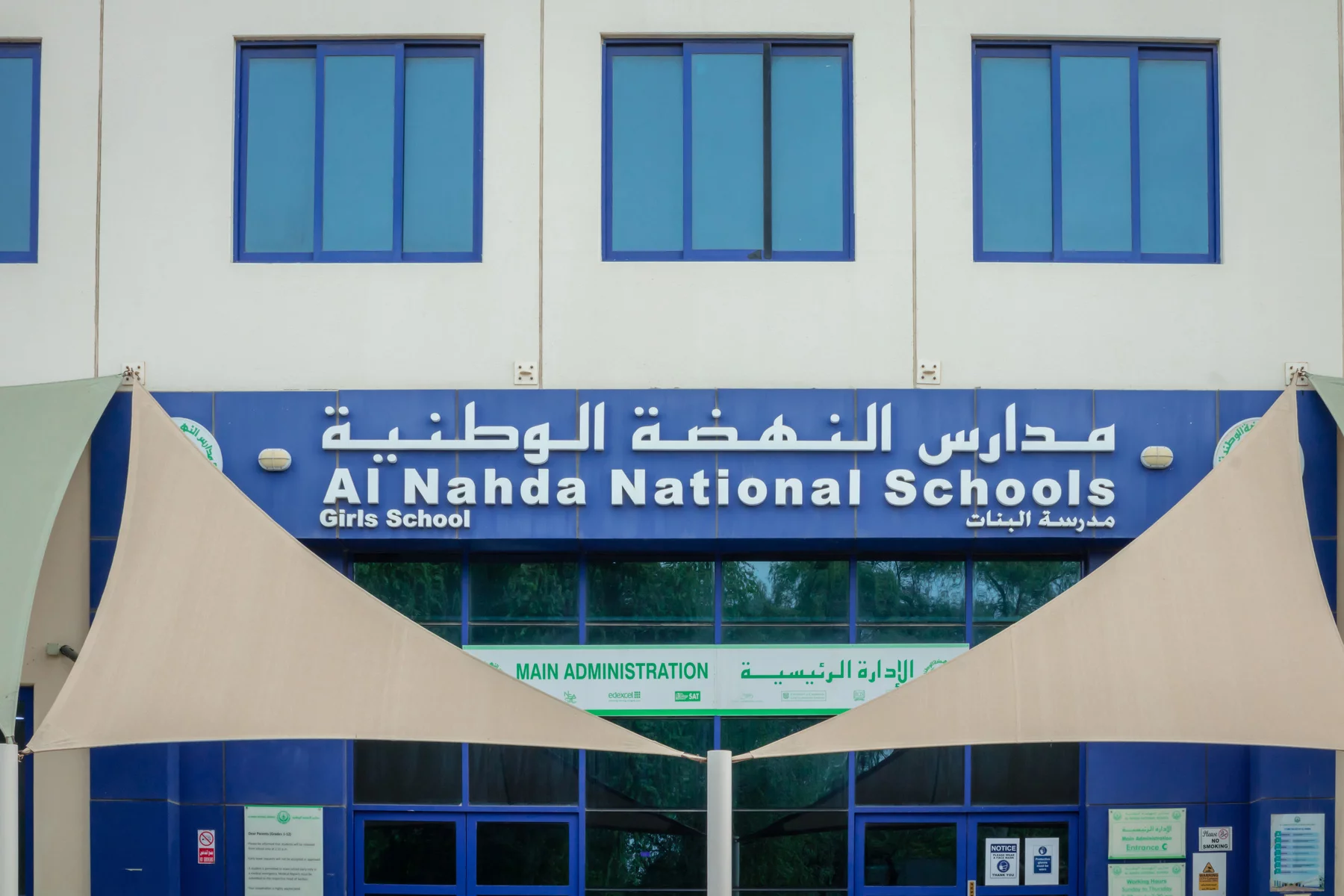
Public schools in the UAE follow the K-12 curriculum which starts at age four and ends at age 17. The 12 school years are divided into the following stages and cycles:
- Kindergarten: KG1 to KG2 (ages four to five)
- Basic level/Cycle 1: grades 1 to 4 (ages six to 9/10)
- Intermediate level/Cycle 2: grades 5 to 8 (ages 10 to 13/14)
- Secondary level/Cycle 3: grades 9 to 12 (ages 14 to 17/18)
While local private schools may also follow the national curriculum, international schools set their own with differing years or grades and subject choices.
Education in the UAE is mandatory from ages six to 18, which includes both Emirati and international children. Upon completing grade 12, students receive a high school certificate, demonstrating that they have met all mandatory schooling requirements.
State/public secondary schools in the UAE
The UAE is a small country with a total student population of 1.1 million, of which almost 130,000 are public secondary school students. According to the Emirates School Establishment – which manages public schools as an autonomous, semi-independent authority – there are 565 public schools (both primary and secondary) in the UAE.
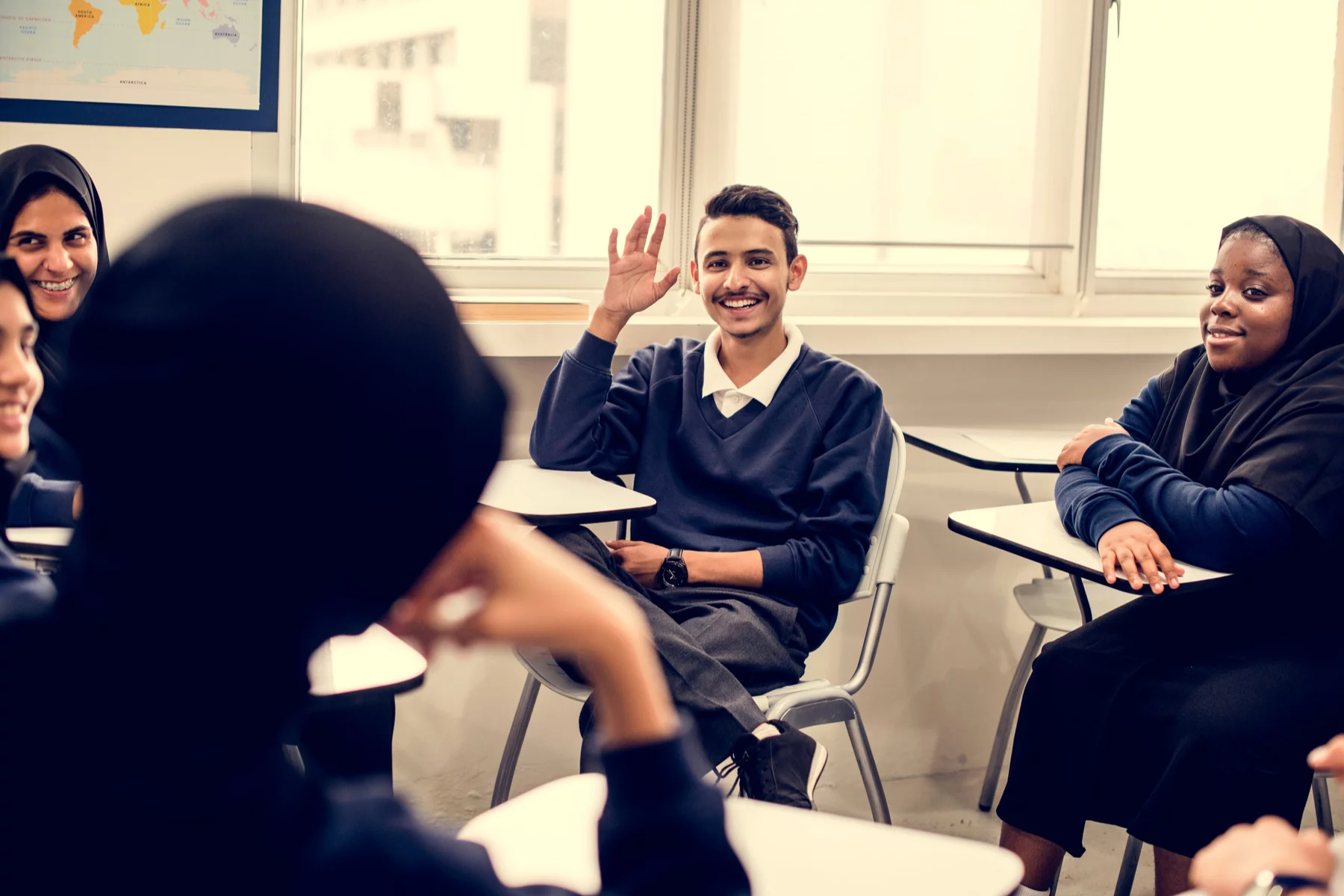
Because the language of instruction in public schools is Arabic, most international students don’t see this as a viable secondary school option in the UAE. Moreover, secondary schools are free for Emirati students but not for expats who must pay fees.
It is mandatory to wear school uniforms in public schools and most private schools in the UAE. Additionally, public schools segregate students into single-gender classes, while private schools are completely co-educational. In 2018, the MoE allowed mixed-gender classes, but only in public primary schools (grades 1 to 4).
The curriculum in state secondary schools in the UAE
The school week in state secondary schools in the UAE runs from Sunday to Thursday and the school year is divided into trimesters; with a winter break in December, a spring break in March and April, and a summer break in the hot months. Schools also close on public holidays in the UAE.
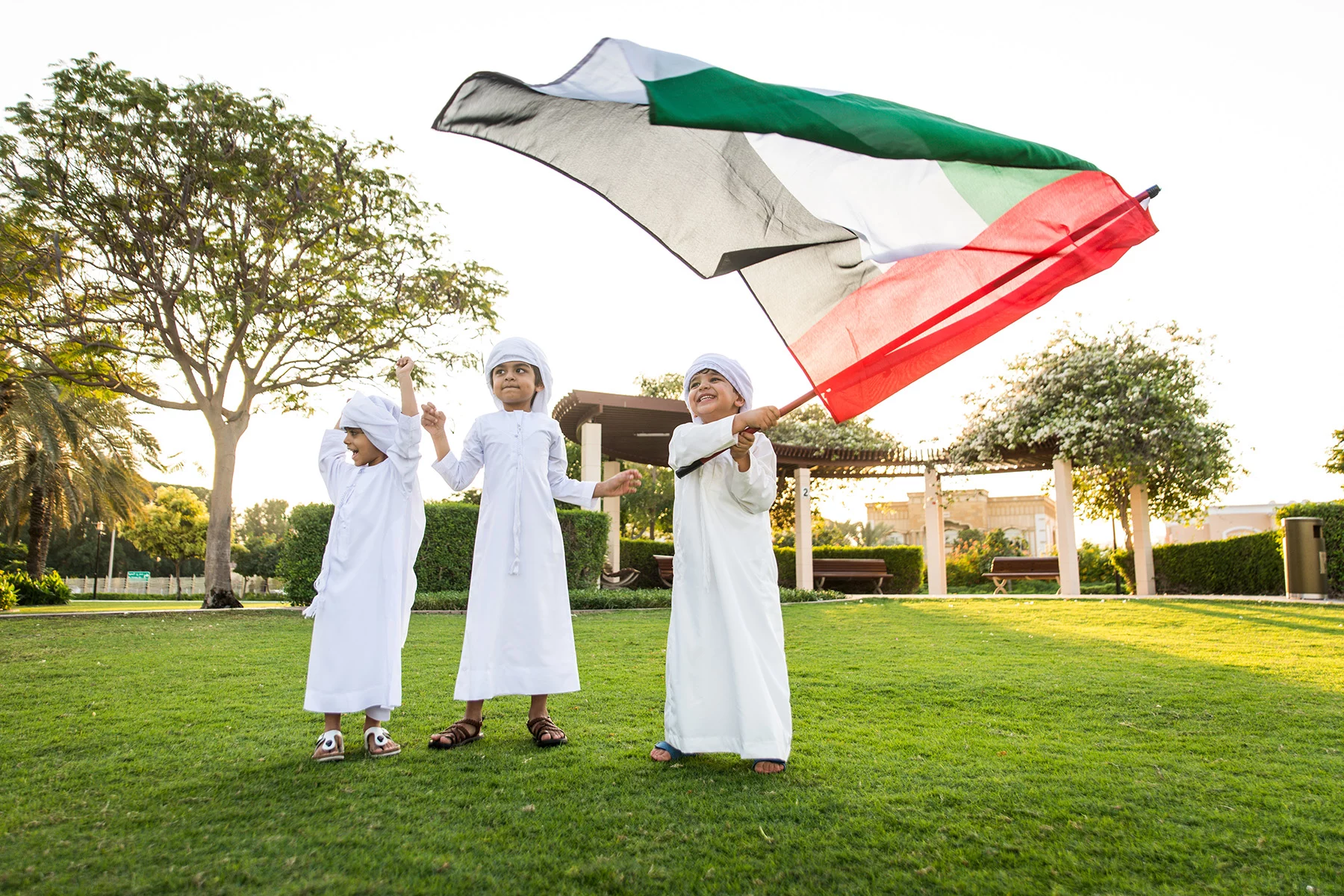
Students in public secondary schools in the UAE can expect to learn a range of subjects, including the following:
- Mathematics
- Science
- History
- Arabic
- Islamic Studies
- English
Schools assess the progress of students with standardized tests throughout the year as well as final exams. Notably, class sizes and extra-curricular options vary between individual schools and emirates. Similarly, physical education requirements also vary across the emirates, with some, like Abu Dhabi and Dubai, recently making it mandatory.
The pros of state secondary schools in the UAE
Attending a public secondary school in the UAE is a good option if you plan to stay in the country long-term, as your child will integrate more into Emirati culture. Your child will also make local friends and learn Arabic, which they wouldn’t experience in an international school.
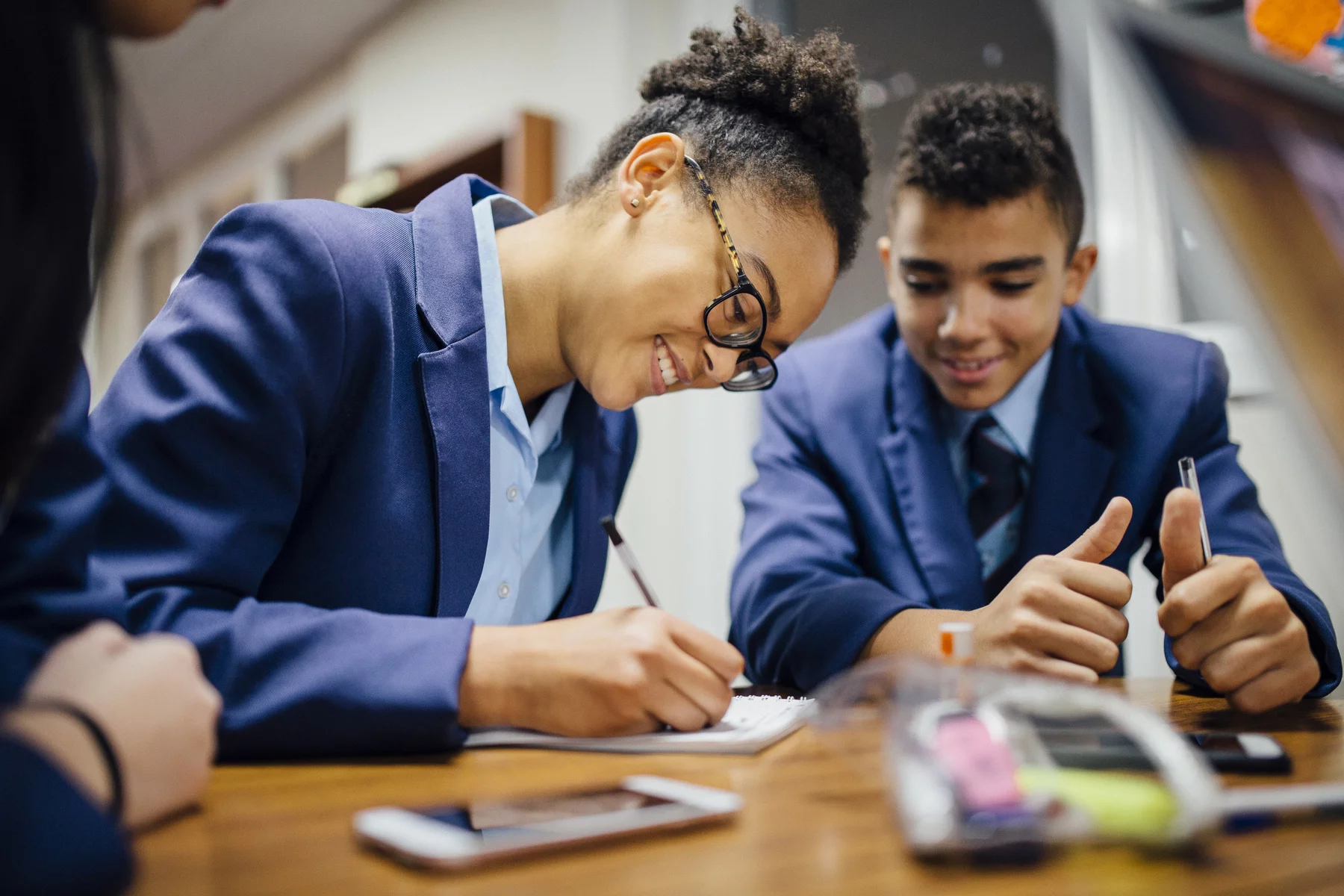
Therefore, the decision is really down to what you want for your child as well as the period of time you intend to live in the UAE.
The cons of state secondary schools in the UAE
On the flip side, enrolling in public secondary schools in the UAE requires that your child learns in Arabic. Additionally, they will need to adjust to public school culture, which some argue can be disorganized and difficult to navigate.
Applying to secondary schools in the UAE
Applying to public secondary schools in the UAE as an international pupil is quite rare. Still, parents or students can do this online. You can register your child via the Ministry of Education (MoE) website by completing and submitting your application form. This website will also tell you which documents you need and the timeline for the application process.
Private secondary schools in the UAE
Private secondary schools in the UAE host more than 720,000 of the country’s students. And most of these students come from every corner of the world. There are two types of private secondary schools in the country: local private schools, which teach in Arabic, and international schools, which don’t.

Local private schools typically follow the curriculum set by the Ministry of Education (MoE). However, they may have a unique approach to creativity or independence. These schools are often segregated by gender, with varying costs, class sizes, and extra-curricular options across the emirates.
International schools in the UAE
International secondary schools are plentiful in the UAE, but there are long waiting lists. Because most international families eventually leave the UAE, many parents enroll their children in schools that follow a global or country-specific curriculum. Consequently, their children can easily transition into school back home or another country. For instance, you will find international schools that follow British, Irish, Indian, Canadian, French, and German educational models, among others.
However, international schools can be expensive. Depending on your child’s grade, for instance, you can expect to pay anywhere from AED 2,700 (for kindergarten) to AED 70,000 (secondary school) per year.
The pros of international schools in the UAE
International secondary schools are popular in the UAE because of their academic rigor and multicultural environment. Moreover, staff are familiar with the needs of international families and strive to create a comparable environment to what a child might experience back home.
The cons of international schools in the UAE
On the flip side, international schools can create a bubble, insulating children from the local community. Additionally, high school fees can make selecting the right international school an expensive consideration.
Graduating in the UAE
Students in public or private schools that follow the UAE Ministry of Education (MoE) curriculum must pass the Emirates Standardized Test (EmSAT). This test is a requirement for admission into most public colleges and universities in the UAE. However, because most international schools follow their own curriculum, this mandate won’t apply to many international families in the country.
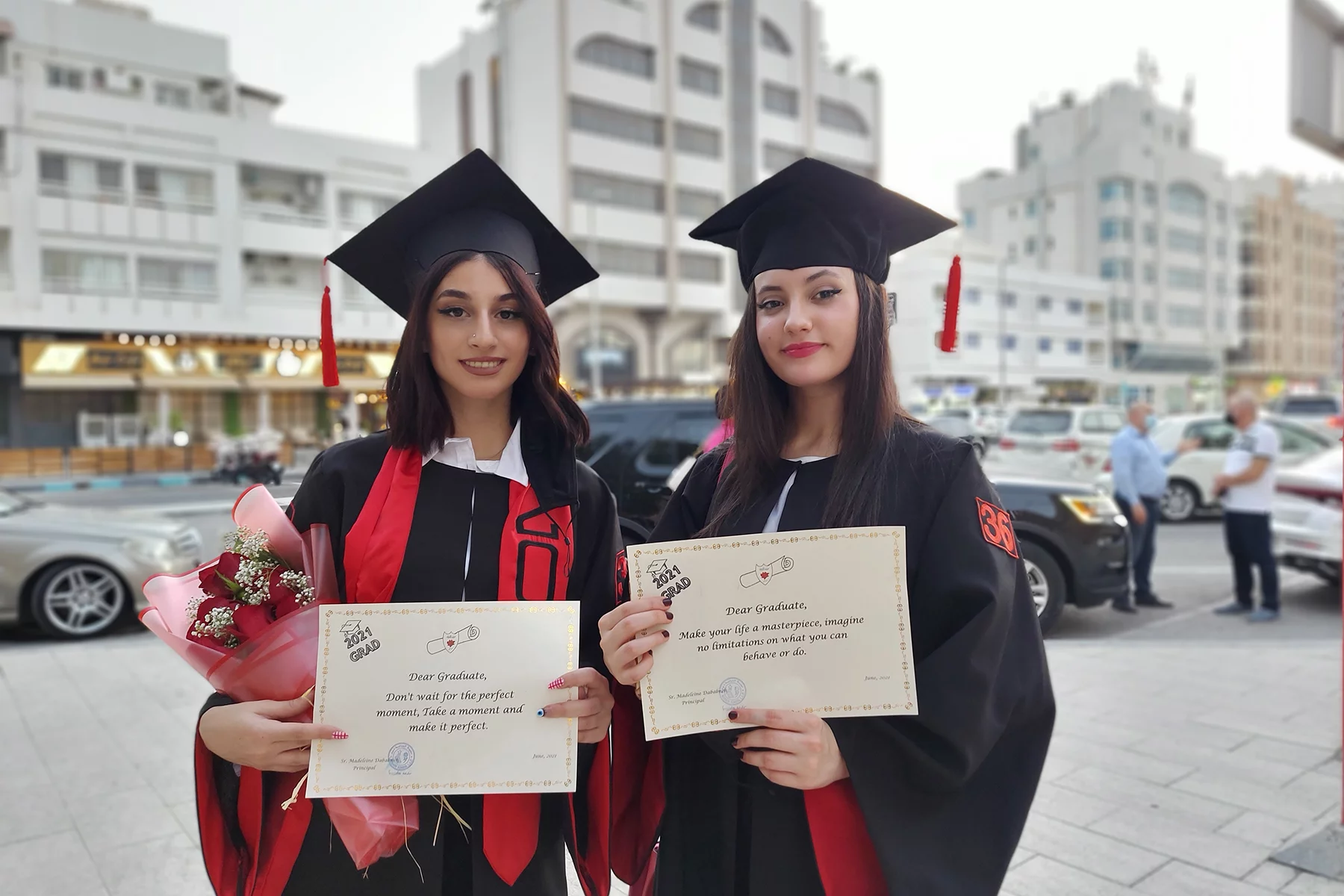
International school graduation requirements will depend on the individual school and the curriculum it follows. Consequently, students will have to pass all their assessments and final exams to receive their diplomas.
The International Baccalaureate (IB) in the UAE
The International Baccalaureate (IB) program is a highly respected, global, academic curriculum. It requires students to study subjects such as math, science, arts, language, and literature, among others.
Essay writing, theory of knowledge, and a personal project that combines service and creativity are central to the IB program. Schools that offer IB programs are in high demand because they give students who want to continue to higher education overseas an advantage. Within the UAE, 54 schools now offer the IB Diploma Program.
Trade schools in the UAE
Unfortunately, children of international families are not eligible to study public trade school programs in the UAE. Generally, Emirati secondary school students who are interested in technical and vocational training in the country can apply to a public applied stream program that prepares them for the workforce.
Beginning in grade 9, these students take some academic courses which are similar to their peers but also learn specialized skills in fields such as:
- Event Management
- Technology
- Logistics
- Health and Social Care
Students will then have work placements in grades 11 and 12 to enable them to gain more hands-on experience. Those who successfully complete this track will obtain a Technical Secondary Diploma.
Useful resources
- U.AE – the govenment portal for all public services including education
- Ministry of Education (MoE) – the federal governing body for education and official government website of the MoE
- IB Organization – the official website of the IB program
- IB World Schools – allows you to search for IB schools in the UAE
- International School Search – a global database that allows you to search for international schools in the UAE
- U.AE school finder – find schools in the UAE via this government portal
- The Knowledge and Human Development Authority (KHDA) – the local governing body for private education in Dubai
- Department of Education and Knowledge – the local governing body for private education in Abu Dhabi
- Ministry of Education (MoE) – online application and registration for public secondary schools in the UAE
